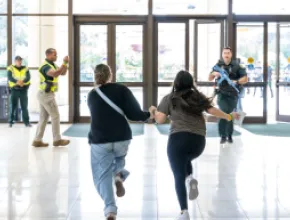Dr. Lynn Linde, senior director of the Center of Counseling Practice, Policy and Research at the American Counseling Association recently sat down for an interview with Buildings, one of our sister publications.
[Read the Buildings interview here: Plan Ahead for Post Crisis Counseling in Your Facility]
The following question was asked by Senior Editor Janelle Penny, on behalf of Meetings Today.
MT: If you’re planning a meeting and tragedy strikes at the destination, convention center or other venue, especially if it was the first or second day of a longer event, is it better to cancel the event or to keep going, but make space available to talk? How should meeting planners walk that line?
Dr. Lynne Linde: I would hope that some of this is spelled out in the contract and event insurance plan.
The answer depends on what happened. If the incident involved only a few people and it’s a large event, then the event should probably go on. For example, our conference had over 4,000 attendees; when something has happened that impacted only a handful of people, the event goes on.
We had a conference one year when a freak spring blizzard occurred. Many members could not get to the destination, but the members who were already there couldn’t leave either, so the event went on with some adjustments. But if it’s a large incident or crisis involving many participants, and a traumatic one, then it may be better to cancel and participants’ safety comes first.
Every meeting planner is going to make the decision, in conjunction with others, based on the circumstances of the incident and their membership. Each organization’s culture and expectations are different, so what works for one may be an anathema to another.
In any case, it is always safe to have a space and facilitator or counselor available for participants.
Related Content:





